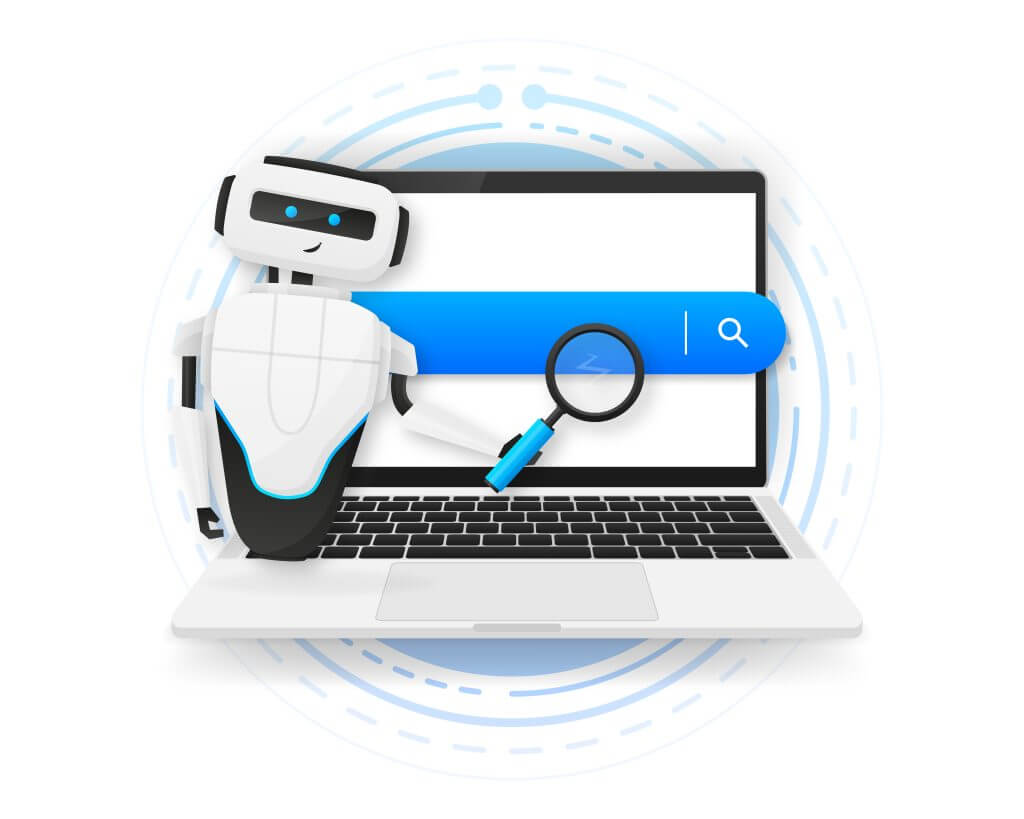8 Min Read

The world of search engines is undergoing a revolution, with the advent of artificial intelligence (AI) technology. AI-powered search engines are emerging as a major threat to the dominance of Google, which has long been the king of the search engine market. Google’s success has been built on its ability to deliver accurate and relevant search results to its users, but with the rise of AI-powered search rivals, Google is facing new challenges.
AI technology is transforming the search landscape in a number of ways. Natural language processing and machine learning algorithms are enabling search engines to understand and interpret user queries in a more sophisticated manner, delivering more accurate and relevant search results. This has led to the emergence of new search engines such as Bing and Baidu, which are leveraging AI to enhance search and provide more personalized results to users.
Despite these challenges, Google remains the dominant force in the search engine market, with a market share of over 90%. However, the rise of AI-powered search rivals poses a significant threat to its dominance. Google needs to adapt and evolve in order to stay relevant in the AI-powered search era.
In this article, we will explore the impact of AI on the search landscape, and examine the challenges that Google faces in staying relevant. We will discuss the emergence of AI-powered search rivals, and how they are leveraging AI to enhance search. We will also examine how Google is responding to the threat posed by these rivals, and the investments the company is making in AI research and development. Finally, we will consider the potential impact of AI-powered search on the future of search and the internet ecosystem as a whole, and provide recommendations on what Google needs to do to stay relevant in this new era.
The Advantages of AI-Powered Search
AI-powered search engines have several advantages over traditional search engines. One of the biggest advantages is that they enhance the accuracy and relevance of search results. Traditional search engines rely on keywords and links to determine the relevance of search results, whereas AI-powered search engines use sophisticated algorithms to understand the intent behind a user’s search query and deliver more personalized results.
AI technologies such as natural language processing and machine learning are used by search engines to improve their accuracy and relevance. Natural language processing algorithms enable search engines to understand the meaning behind a user’s search query, rather than just the words used in the query. This allows search engines to deliver more relevant results, even when the user’s query is not perfectly phrased.
Machine learning algorithms enable search engines to learn from user behavior and adapt their search results accordingly. This means that over time, AI-powered search engines become more personalized and more accurate at delivering results that match the user’s intent.
AI-powered search rivals such as Bing and Baidu are leveraging AI to challenge Google’s dominance. For example, Bing uses machine learning algorithms to understand user behavior and deliver more personalized search results. Baidu, the leading search engine in China, uses natural language processing to better understand user queries in Chinese, which is a complex language with many different dialects.
Overall, AI-powered search engines have several advantages over traditional search engines, and are rapidly gaining popularity as a result. As these search engines become more sophisticated, Google will need to adapt and innovate in order to stay competitive.
Google’s Response to AI-Powered Search

In response to the rise of AI-powered search, Google has taken a proactive approach to integrating AI into its search algorithms. The company has made significant investments in AI research and development, and has implemented AI-powered search in several of its products.
Google’s use of neural networks and deep learning algorithms has enabled the company to deliver more personalized search results. These algorithms are able to learn from user behavior and adapt search results accordingly. For example, if a user frequently searches for information about a particular topic, Google’s algorithms will prioritize search results related to that topic.
In addition to improving traditional search results, Google has also implemented AI-powered search in products such as Google Assistant and Google Lens. Google Assistant is an AI-powered virtual assistant that can answer questions and perform tasks, such as setting reminders or playing music. Google Lens is an image recognition tool that uses AI to identify objects and provide information about them.
Google’s proactive approach to integrating AI into its search algorithms has helped the company stay ahead of its competitors in the search engine market. However, with the rapid pace of technological innovation, Google will need to continue to invest in AI research and development in order to maintain its competitive edge.
The Future of AI-Powered Search
As AI continues to advance, the future of search is likely to be transformed by emerging AI technologies. One of the most significant of these technologies is voice search, which is rapidly becoming more popular among users. Voice search allows users to speak questions in natural language, rather than typing keywords into a search bar. This technology is particularly well-suited to mobile devices, where typing can be more difficult.
Google has already begun to adapt to this trend by implementing voice search in its products, including Google Assistant and Google Home. However, as voice search becomes more popular, Google will need to continue to refine its algorithms and improve the accuracy of its voice recognition technology.
Another emerging AI technology that is likely to shape the future of search is visual search. Visual search allows users to search for products by taking a photo or scanning an image. This technology has the potential to revolutionize e-commerce, as it enables users to quickly and easily find products they are interested in.
Google has also made strides in visual search, with the development of Google Lens. This tool uses AI to identify objects and provide information about them, and can be used for tasks such as translating text or identifying landmarks.
As these emerging AI technologies continue to evolve, Google will need to stay ahead of the curve in order to remain relevant in the search engine market. This will require ongoing investments in AI research and development, as well as a willingness to adapt to changing user behavior and preferences.
The Importance of User Privacy
As AI-powered search continues to evolve, the issue of user privacy is becoming increasingly important. AI algorithms rely on vast amounts of data in order to improve accuracy and relevance, and this data is often collected from user searches and online behavior.
Google, as the dominant player in the search engine market, has faced criticism for its use of user data. In particular, concerns have been raised about Google’s use of data for targeted advertising, as well as the company’s collection and storage of personal information.
This has led to growing calls for greater user privacy protections, including the implementation of more robust data protection laws and increased transparency around data collection and usage. In response to these concerns, Google has made efforts to improve user privacy, including the introduction of features such as incognito mode and improved user controls.
However, the issue of user privacy remains a potential threat to Google’s dominance in the search engine market. If users become more concerned about the collection and use of their personal data, they may be more inclined to switch to search engines that offer greater privacy protections.
In order to maintain its position as the dominant player in the search engine market, Google will need to continue to address user privacy concerns and find ways to balance the need for data with the need for user privacy. This may require more investment in data protection and transparency, as well as a renewed focus on building trust with users.
In conclusion, the rise of AI-powered search is transforming the search engine landscape. Google’s dominance in the market is being challenged by rivals who are leveraging AI technologies to deliver more accurate and relevant search results. To stay relevant in this AI-powered search era, businesses need to adapt to emerging technologies such as voice search and visual search.
As a digital agency, we recommend businesses to stay up-to-date with the latest developments in AI and search. It is important to prioritize user privacy and data protection, while also investing in AI research and development to improve the search experience for customers. By doing so, businesses can stay ahead of the competition and continue to deliver valuable search experiences for their customers.
More blog articles!



